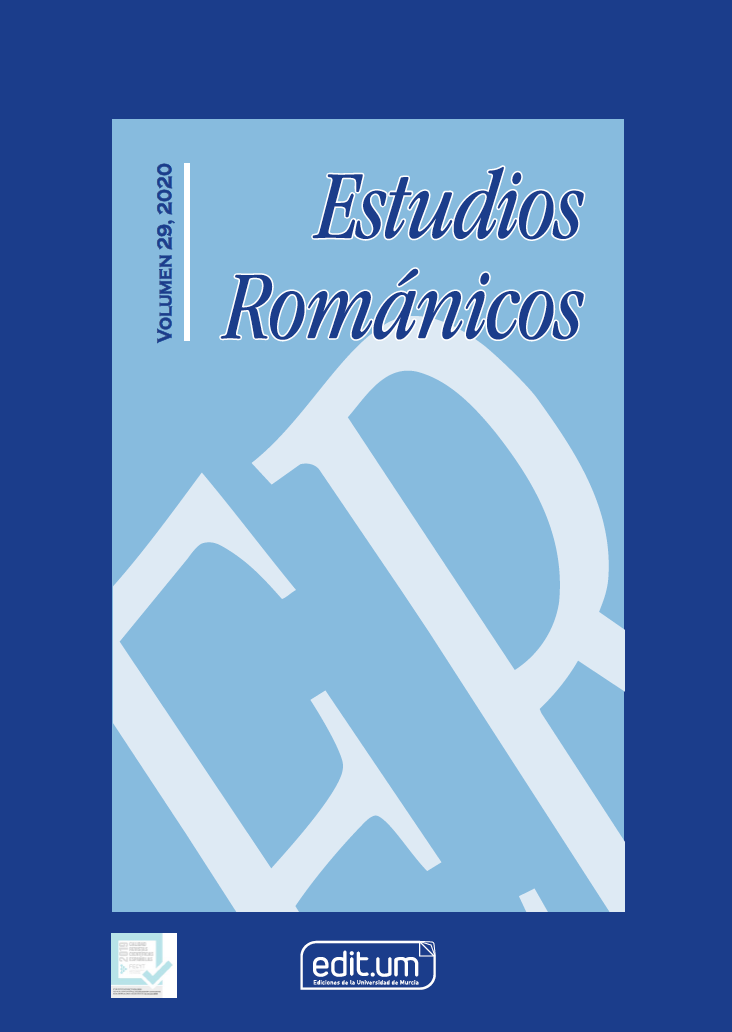Literature-medicine and scenography of the psychological trauma in "J'ai le SIDA" by Blasius Ngome
Abstract
Literature-medicine (2015) is a fictional variant that addresses issues of disease in the literary space. In I have AIDS, Blasius Ngome presents a character weakened by a psychologically destabilising apprehension: he thinks he is the bearer of HIV/HIV. The author then leads the reader in the maze of a suspenseful story whose plot is punctuated by numerous digetic maneuvers. How does the narration of this malaise develop, which plunges the hero of Ngome into a haunting traumatism that subjugates him from the beginning to the end of the story? Socio-criticism and psycho-criticism guide our reflection. Both take into account the immanence of literary analysis. Moreover, the first theory fits skillfully into the second, while the second opens the way to a "bewitching network" and a display of the author's "personal myth" that is negotiated through the constituent elements of diegesis. We conclude by examining the outline of the demiurge's message in the face of this pandemic that continues to ravage in the cities of the world many decades after the discovery of its existence.
Downloads
-
Abstract633
-
PDF (Español (España))397
References
BARTHES, Roland (1966): Critique et vérité. Paris : Seuil.
DUPRIEZ, Bernard (1984): Les procédés littéraires (Dictionnaire). Paris : Editions 10/18.
EZQUERRO, Milagros (1983): Théorie et fiction. Montpellier : C.E.R.S.
GENETTE, Gérard (1972): Figures III. Paris : Seuil.
GOLDENSTEIN, Jean-Pierre (1990): Entrées en littérature. Paris : Hachette.
HAMON, Philippe (1983): Le personnel du roman. Genève : Droz.
KLEIN, C. ; ALBOU, N. ; BILLAULT, Cl. ; FDIDA, M. ; SFEZ, D. (eds.) (1998) : Mieux lire. Mieux écrire. Mieux parler. Paris : Hachette.
MAURON, Charles (1963): Des métaphores obsédantes au mythe personnel, introduction à la psychocritique. Paris : José Corti.
MAURON, Charles (1964): Psychocritique du genre du comique. Paris : José Corti.
MITTERAND, Henri (1980): Le Discours du roman. Paris : PUF.
NGAFOMO, Louis Hervé (2015): Littérature-médecine: émergence et radiance de la critique sociopathologique en francophonie, Paris : L'Harmattan.
NGOME, Blasius (2005): J’ai le Sida. Douala : Macacos.
NKULNGUI MEFANA, (2013): Lumières sur Balafon. Itinéraire d’un homme, d’une pensée, d’une œuvre, d’une vie d’enseignement. Yaoundé : Le Flambeau.
OWONA-NDOUGUESSA, François-Xavier (1997): Comprendre La chanson de Salomon de Toni Morrison. Paris : Les Classiques africains.
RICHARD, Jean-Pierre (1974): Proust et le monde sensible. Paris : Seuil.
ROBRIEUX, Jean-Jacques (2000): Rhétorique et argumentation. Paris : Nathan.
Copyright (c) 2020 Études Romanes

This work is licensed under a Creative Commons Attribution-NonCommercial-ShareAlike 4.0 International License.
Las obras que se publican en esta revista están sujetas a los siguientes términos:
1. El Servicio de Publicaciones de la Universidad de Murcia (la editorial) conserva los derechos patrimoniales (copyright) de las obras publicadas, y favorece y permite la reutilización de las mismas bajo la licencia de uso indicada en el punto 2.
2. Las obras se publican en la edición electrónica de la revista bajo una licencia Creative Commons Reconocimiento-NoComercial-SinObraDerivada 3.0 España (texto legal). Se pueden copiar, usar, difundir, transmitir y exponer públicamente, siempre que: i) se cite la autoría y la fuente original de su publicación (revista, editorial y URL de la obra); ii) no se usen para fines comerciales; iii) se mencione la existencia y especificaciones de esta licencia de uso.
3. Condiciones de auto-archivo. Se permite y se anima a los autores a difundir electrónicamente las versiones pre-print (versión antes de ser evaluada) y/o post-print (versión evaluada y aceptada para su publicación) de sus obras antes de su publicación, ya que favorece su circulación y difusión más temprana y con ello un posible aumento en su citación y alcance entre la comunidad académica. Color RoMEO: verde.












